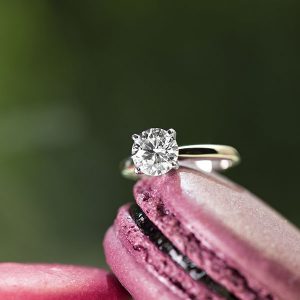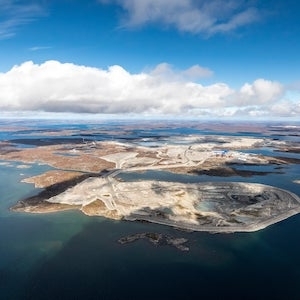
On Oct. 11, WD Lab Grown Diamonds, one of the true pioneers of the created gem business, filed for Chapter 7 in Delaware federal court. The fact that the company didn’t even attempt a restructuring, and there’s no apparent purchaser of its assets, is a stark reflection of its pre-filing financial condition.
Many say the Beltsville, Md.–based company fell victim to changes in the lab-grown business—primarily, the shift in diamond growing to India and China. It’s very hard for a U.S. grower to compete with the low cost of labor overseas.
However, insiders say there were other issues, mostly stemming from WD’s 2019 purchase by investment firm Huron Capital, which was financed by a combination of equity and debt. The debt was serviced by a different fund, Tree Line Capital. “Huron was used to steadier and unsexier businesses,” says a former employee.
Following the acquisition, Huron brought in CEO Sue Rechner. In early 2020, WD sued six companies for purportedly infringing on the patents it had licensed from the Carnegie Institution of Washington. This was something the company had long wanted to do, and Huron saw the lawsuits as a potential profit center. But by that point the patents had only about two years left on them. And while most of WD’s antagonists settled, the company greatly underestimated the desire of one defendant, Fenix Diamonds, to fight its suit—and ultimately prevail.
The patent battle hurt WD with one of its main assets: its reputation. In the early days of lab-grown diamonds, some considered its competitors either too murky or too controversial. The people at WD, by contrast, were generally well-liked.
The lawsuits blew up a lot of good will. “It was a classic example of a company that didn’t know the business,” says one person involved in the litigation. “WD came to India with a bulldog approach that didn’t win them any friends.”
Instead of WD intimidating companies such as Signet into buying its diamonds, the jewelry giant purchased diamonds produced with HPHT in China, which had a lot less chance of violating WD’s patents.
The litigation was also not cheap. WD still owes its intellectual property attorney, Perkins Coie, $2.82 million, according to its bankruptcy filing.
WD’s business model involved selling polished, rather than rough. That required paying cutters in India. As it neared its end, the company was giving cutters rough to cover payments owed, sources say.
Another oft-cited mistake involved WD’s relationship with Richline. The Berkshire Hathaway–owned company had been one of WD’s biggest customers, but the new guard under Huron worried WD was too beholden to Richline, and they wanted to diversify. In the end, Richline was able to replace WD. It’s unclear if WD was able to replace Richline.
Exacerbating all this was the ongoing fall of lab-grown prices. “The idea was to take the business and scale up quickly,” says another insider. “When the price went down, it wasn’t able to scale.”
In its bankruptcy papers, WD lists two average prices for its diamond inventory: $215 and $45 per carat. Analyst Paul Zimnisky believes the $45 is for rough and $215 for polished. He also thinks those values could be high given current market conditions.
WD introduced a proprietary brand, Latitude, and was part owner of Oscar Massin, but brand building is a costly, long-term effort that the company didn’t necessarily have the resources for. In WD’s last year, many employees either left or were let go. It changed CEOs and tried to pivot to tech applications, but backers’ patience eventually ran out.
The company’s biggest debtor is Tree Line, which is owed $36.03 million. That amount was supported by a mere $918,998.13 in collateral.
According to the bankruptcy filing, Tree Line foreclosed on its loan to WD on Oct. 10 and “took ownership and possession of substantially all of the debtors’ assets, including all or substantially all of the debtors’ cash, intellectual property, and equipment.”
About $8 million is owed to unsecured creditors, including members of the trade. The filing says that one lab-grown company, Aether Diamonds, owes $708,000 to WD and that WD has possession of an Aether filtration device. An agreement has been reached on this matter, a source says.
The next step is for bankruptcy court to appoint a trustee. Yet creditors should probably not expect to recoup much, if anything, says Adam Stein-Sapir, a managing partner at Pioneer Funding Group, a bankruptcy investment fund. “The huge amount of senior debt makes it much less likely that trade creditors will get their money back,” he says.
(Photo courtesy of WD Lab Grown Diamonds)
- Subscribe to the JCK News Daily
- Subscribe to the JCK Special Report
- Follow JCK on Instagram: @jckmagazine
- Follow JCK on X: @jckmagazine
- Follow JCK on Facebook: @jckmagazine






